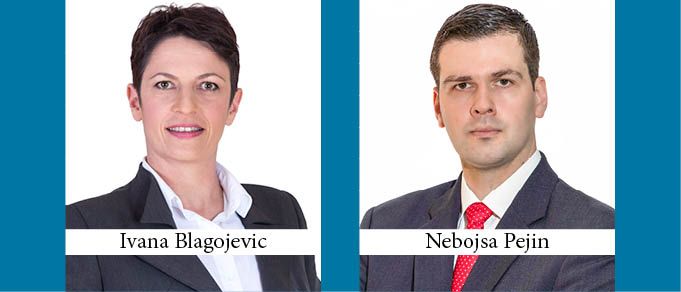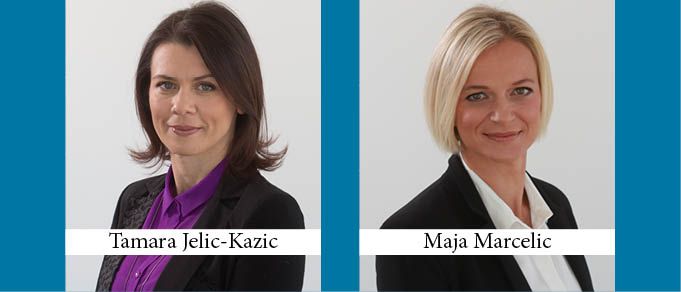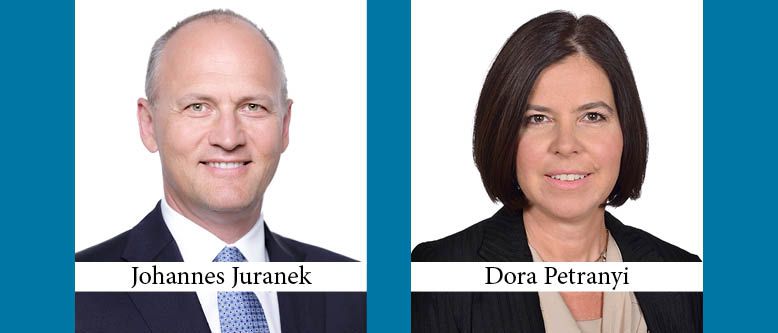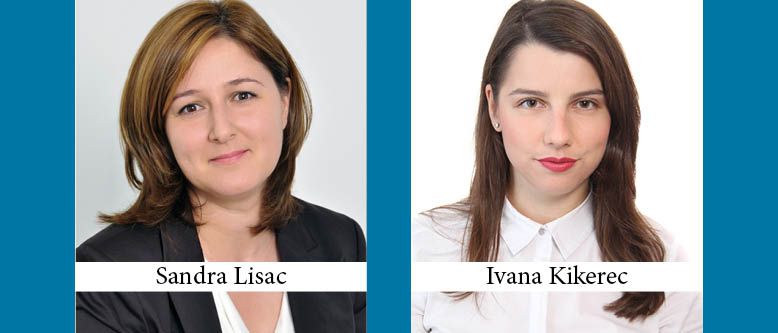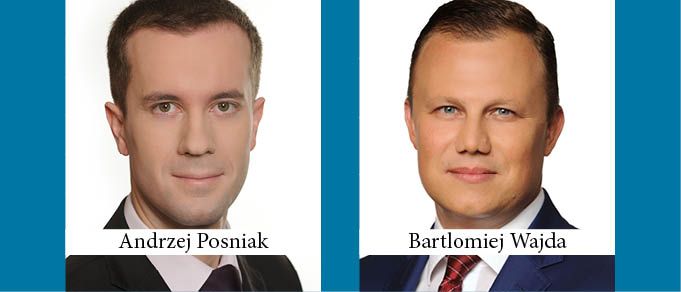The beginning of 2019 will mark the start of a major transformation of the Serbian tax system, bringing new and exciting opportunities for companies who do business or wish to invest in Serbia, but also bringing potential challenges concerning the practical application of new tax rules.
Tax Liability of Non-Resident Electronic Service Suppliers?
Pursuant to an amendment to the Turkish Value Added Tax Law at the beginning of 2018, non-resident electronic service suppliers are now liable for Value Added Tax on services provided electronically to Turkish individuals who are not VAT taxpayers.
Croatia Prepares for Application of Multilateral Instrument
International taxation is rapidly changing and aligning with recommendations of the Project for the Prevention of Base Erosion and Profit Shifting (BEPS).
Inside Out: Damen’s Take-Over of Daewoo Shipbuilding & Marine Engineering Co Ltd.’s Participation in Daewoo Mangalia Shipyard
The Deal: In July 2018, CEE Legal Matters reported that Reff & Associates had advised Dutch shipbuilding group Damen on its take-over of Daewoo Shipbuilding & Marine Engineering Co Ltd.’s participation in Romania’s Daewoo Mangalia shipyard. DSME was advised by CMS. The yard, which was renamed the Damen Shipyards Mangalia, is now operated as a joint venture with the Romanian Government, with Damen assuming operational control. We reached out to both firms for more information.
The Cyber Challenge in CEE
No individual, no business, and no country is immune from the threat of cybercrime. The increasingly successful and complex economies of CEE countries are no exception to this rule. In fact, for both historical and political reasons, CEE is at particular peril.
Court Proceedings in Russia to be Improved
On July 30, 2018, Russian President Vladimir Putin signed into law two bills approved by the Russian Parliament aimed at improving commercial, civil, administrative and criminal proceedings in Russia (the “Bills”).
The Features of Collective Redress in Croatia
The The rules on collective redress were first introduced in Croatia’s legal system by two special acts – the 2003 Consumer Protection Act and the 2009 Act on Prevention of Discrimination. It was only later, in 2011, that the Civil Procedure Act provided the general legal framework for collective redress actions, named “actions for the protection of collective interests and rights.”
Insolvency Proceedings in the Energy Sector on the Increase in Bulgaria
Bulgaria, along with the entire CEE region, has been experiencing a surge in investment and transactions over the past two to three years. Prior to that, hit by a late wave of the global recession, Bulgarian business faced problems with over-indebtedness, resulting in a large number of insolvencies, especially in the real estate sector. Since then, however, insolvencies have been decreasing. Thus, the recent uptick in the number of insolvency procedures being initiated in a particular sector – energy – deserves special focus and attention.
Will Austria Soon Have Class Action Lawsuits?
While globalization and digitalization have increased the risk of violations that affect thousands of consumers, several EU member states — including Austria — do not yet offer class action lawsuits. The EU Commission has therefore proposed a draft directive to allow representative actions for the protection of collective interests of consumers as part of its “New Deal for Consumers.”
Territorial Scope of the Montenegrin Competition Law
Article 2 of the Montenegrin Law on the Protection of Competition limits the law’s application to acts undertaken within the territory of Montenegro and acts undertaken outside of Montenegro which have as their object or effect the distortion of competition in Montenegro. In practice, however, the Law on the Protection of Competition (the “Law”) seems sometimes to be applied beyond its territorial scope.
Unfair Trading Practices in the Food Supply Chain – New Competence of the Croatian Competition Agency
At the EU level, long-term discussions on unfair trading practices in the food supply chain have resulted in the Proposal for a Directive that is currently in process. The Republic of Croatia has already adopted a law with a similar subject matter – the Act on Tackling Unfair Trading Practices in the Food Supply Chain (the “Act”) – which entered into force at the end of 2017. The Act concerns business-to-business relations and aims to protect suppliers (including primary producers) in their relations with resellers, buyers, and processors with significant negotiating power. The authority in charge of implementing the Act is the Croatian Competition Agency (the “Agency”), which the legislator considers the most competent to handle these matters due to its experience in abuse of dominance cases in competition law.
Antitrust Enforcement in Poland: What 2018 Brought and What Lies Ahead
The Polish Competition Authority has been increasingly active as the market watchdog. In assuming his position as President of the Competition Authority in 2016, Marek Niechcial announced his commitment to strengthening competition law enforcement via a stricter approach, more investigations, and higher fines for wrongdoers. The last two years demonstrate that the Authority is working towards delivering on this promise.
Amendments to Polish Transfer Pricing Regulations in 2017 and 2018
Significant changes have been made to Polish transfer pricing regulations in recent years. New legislation, adopted in 2017, introduced a three-tiered approach to transfer pricing documentation consisting of: (1) local file, (2) master file, and (3) country-by-country reporting. Poland was one of the first countries to introduce the changes recommended by the OECD in BEPS (Action 13).
Expat on the Market: Interview with Andrew Kozlowski of CMS
Andrew Kozlowski is Counsel (and former Managing Partner) at CMS in Warsaw, where he specializes in energy and project finance, corporate/M&A, privatizations, and international capital markets. He has been involved in numerous infrastructure projects in Poland and across CEE and various project finance transactions in the energy and transportation sectors, from motorways, railways, and waste, to energy utilities.
Marketing Law Firm Marketing: The Biggest Difference
The news that many of the legal markets in CEE impose stricter rules on law firm advertising and marketing than many of their Western counterparts comes as no surprise. Still, to explore this concept just a bit, for this issue, we asked law firm marketing and BD experts around CEE: “What, in your opinion, is the biggest difference between law firm marketing in your market and law firm marketing in London or New York?
Saving the Snitch: Increasing Whistle-Blower Protection in Poland
Against the backdrop of the many significant and at times highly controversial changes being made to Polish law at the moment, the country is close to enacting its first ever serious whistleblower protection laws. What will this protection look like, and what does its passage mean for Poland?
Financing Options Under the Croatian Bankruptcy Act
Companies in financial difficulties are regularly faced with challenges in seeking fresh financing – an injection necessary for financial consolidation and to overcome financial difficulties. Such challenges become even greater when a company formally enters pre-bankruptcy or bankruptcy proceedings. In a large number of cases, the companies are in such difficult and irreversible circumstances that potential creditors are usually discouraged from providing new financing, which is sought by the companies unable to provide any indication of success. However, there are situations in which creditors may be willing to provide fresh capital despite the debtor’s difficult situation – most commonly, because they already have an outstanding exposure against the debtor. Existing creditors considering new financing may see an opportunity to exit the existing creditor-debtor relationship less “harmed.” In such cases, the main questions involve the position the creditors can obtain by granting fresh financing and whether the legislative framework regulating pre-bankruptcy proceedings is sufficiently sensitized to their specific position.
Bosnia and Herzegovina’s Factoring Market: Trick or Treat?
Bosnia and Herzegovina (BiH) consists of two distinct administrative entities – the Federation of BiH (FBiH) and Republika Srpska (RS) – and the special administrative unit Brcko District of BiH (BD). In accordance with the constitutional division of competences, factoring activities – a type of debtor finance in which a business sells its accounts receivable (i.e., invoices) to a third party (called a factor) at a discount – fall under the competence of individual parts, resulting in several sets of legislation but two regulators: the Federal Banking Agency (FBA) in FBiH and the Banking Agency in Republika Srpska (BARS), with BD able to choose either of the two.

